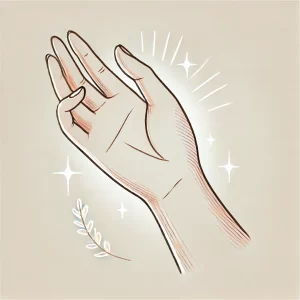うれしい!たのしい!大好き! [Ureshii! Tanoshii! Daisuki!]
DREAMS COME TRUE [Dreams Come True]
Words & Music : 吉田美和 [YOSHIDA Miwa]
“Ureshī! Tanoshī! Daisuki!” is a song included as a B-side track on Dreams Come True‘s third single “Ureshi Hazukashi Asagaeri.” Despite being just a B-side track, it has gained popularity through its use in numerous TV commercials and movies.
Dreams Come True is a representative band of Japan. When they debuted in 1989, they were a three-member group consisting of one woman and two men, and this gender ratio was so well-known that it was described as the Dreams Come True formation. This formation is common in J-pop since the 90s, with groups like Globe, My Little Lover, and Ikimono Gakari, etc.. Personally, I think of Swing Out Sister wiki, which influenced them. Now, Dreams Come True are a duo.

Dreams Come True is commonly abbreviated as “ドリカム – DoriKamu” in Japan. This four-letter abbreviation is very common for musicians’ names and other things in Japan.
初めて会った時から違うモノ感じてた
hajimete atta toki kara chigau mono kanjiteta
- 初めて(はじめて)(hajimete) [hajimete] : first time
- 会う(あう) [au] : meet
- 違う(ちがう) [chigau] : different
- もの [mono] : thing
- 感じる(かんじる) [kanjiru] : feel
(translation) “From the moment I first met (that man), I felt something different (from others).”
Given the context and situations, I intend to talk about this story, assuming the main character is a woman.
It’s a bit unclear, so I’ve added missing words to the translation. It means she felt something different from other men, in a good way.
自分の中の誰かが心をつついてた
jibun no naka no dareka ga kokoro o tsutsuiteta
- 自分(じぶん) [jibun] : myself
- 誰か(だれか)[dareka] : someone
- 心(こころ) [kokoro] : heart
- つつく(つつく)[tsutsuku] : poke
(translation) “Someone inside me was poking my heart.”
“自分 / jibun” can be used to refer to the second person in the Kansai region, so be cautious.
友達にはうまく言えないこのパワーの源を
tomodachi ni wa umaku ienai kono pawā no minamoto o
゛恋をしてる″ただそれだけじゃ
koi o shiteru tada sore dake ja
済まされないことのような気がしてる
sumasarenai koto no yō na ki ga shiteru
- 友達(ともだち) [tomodachi] : friend
- うまく言えない(うまくいえない) [umaku ienai] : can’t express well
- パワー(ぱわー) [pawā] : power
- 源(みなもと) [minamoto] : source
- 恋(こい) [koi] : love
- 済む(すむ) [sumu] : suffice
- のような気がする(のようなきがする)(no yō na ki ga suru) [no yō na ki ga suru] : feel like
(translation) “I can’t explain it well to my friends. The source of this power is
not just ‘being in love.’
I feel like it’s something more.”

She can’t explain it to her friends and doesn’t understand it well herself. Somehow, she feels very energized. It feels insufficient to just call it “being in love.”
きっとそうなんだめぐりあえたんだずっと探してた人に
kitto sō nan da meguri aetan da zutto sagashiteta hito ni
- きっと [kitto] : surely
- めぐりあう(めぐりあう) [meguri au] : encounter
- ずっと [zutto] : always
- 探す(さがす)[sagasu] : search
- 人(ひと) [hito] : person
(translation) “Surely, that’s it. I encountered the person I had always been searching for.”
目深にしてた帽子のつばをぐっと上げたい気分
mabuka ni shiteta bōshi no tsuba o gutto agetai kibun
- 目深に(まぶかに) [mabuka] : (especially for hat) deeply
- 帽子(ぼうし) [bōshi] : hat
- つば [tsuba] : brim
- ぐっと [gutto] : firmly
- 上げる(あげる) [ageru] : raise
- 気分(きぶん) [kibun] : feeling
(translation) “I feel like firmly raising the brim of my hat that I had worn deeply.”

‘わかっていたの前からこうなることもずっと’
wakatte ita no mae kara kō naru koto mo zutto
私の言葉半分笑って聞いてるけど
watashi no kotoba hanbun waratte kiiteru kedo
- わかっている(わかっている) [wakatte iru] : understand
- 前(まえ) [mae] : before
- 私(わたし) [watashi] : I
- 言葉(ことば) [kotoba] : words
- 半分(はんぶん) [hanbun] : half
- 笑う(わらう) [warau] : laugh
- 聞く(きく) [kiku] : listen
(translation) “I understood it. I always knew it would turn out this way,’
You listen to my words with a half-smile.”
It’s a rare single quotation mark.(?) It’s her line.
証拠だってちゃんとあるよ初めて手をつないでから
shōko datte chanto aru yo hajimete te o tsunaide kara
その後すぐに私の右手
sono ato sugu ni watashi no migi te
スーパーでスペシャルになったもの
sūpā de supesharu ni natta mono
- 証拠(しょうこ) [shōko] : evidence
- ちゃんと [chanto] : properly
- ある [aru] : exist
- 初めて(はじめて) [hajimete] : first time
- 手(て) [te] : hand
- つなぐ(つなぐ) [tsunagu] : hold
- 後(あと) [ato] : after
- すぐに [sugu ni] : immediately
- 右(みぎ) [migi] : right
- なる(なる) [naru] : become
(translation) “I have proper evidence. Since the first time we held hands,
Immediately after that, my right hand
became ‘super’ and ‘special.'”
“スーパー / sūpā ” (=super, It doesn’t mean ‘supermarket’) and “スペシャル / supesharu” (=specital) are odd Japanese, but with context, it can be understood. After holding hands with the man she likes, her hand became so happy that it felt special.
The “もの / mono” at the end of this lyric is a sentence-ending particle used in a feminine way. It doesn’t mean “things”.

やっぱりそうだあなただったんだ
yappari sō da anata datta n da
うれしい!たのしい!大好き!
ureshī tanoshī daisuki
- やっぱり [yappari] : after all
- あなた [anata] : you
- うれしい [ureshī] : happy
- たのしい [tanoshī] : fun
- 大好き(だいすき) [daisuki] : love
(translation) “After all, that’s right. It was you.
Happy! Fun! Love it!”
There are many suitable words for beginner Japanese learners. At least, please remember the three words in the title today.
This might be the moment she understood why she felt so powerful. “大好き / daisuki” is the higher version of “好き / suki : like.”

何でもできる強いパワーがどんどん湧いてくるよ
nandemo dekiru tsuyoi pawā ga dondon waite kuru yo
- 何でも(なんでも) [nandemo] : anything
- 強い(つよい)[tsuyoi] : strong
- どんどん [dondon] : increasingly
- 湧く(わく) [waku] : well up
(translation) “A strong power that can do anything is increasingly welling up.”
~ホントはあなたも知ってたはず
honto wa anata mo shitteta hazu
最初から私を好きだったくせに〜
saisho kara watashi o suki datta kuse ni
- 本当(ほんとう) [hontō] : truth
- 知る(しる) [shiru] : know
- 最初(さいしょ) [saisho] : first
- くせに [kuseni] : even though
(translation) “The truth is, you should have known too.
You liked me from the start.”
“本当 / ほんとう / hontō ” is sometimes pronounced and written as “ほんと / honto” in spoken language.
やっぱりそうだめぐりあえたんだずっと探してた人に
yappari sō da meguri aetan da zutto sagashiteta hito ni
いつもこんなにシアワセな気持ち持ち続けていられる
itsumo konna ni shiawase na kimochi mochitsuzukete irareru
- 幸せな(しあわせな) [shiawase na] : happy
- 気持ち(きもち)[kimochi] : feeling
- 持つ(もつ)[motsu] : hold
- 続ける(つづける) [tsuzukeru] : continue
(translation) “After all, that’s right. I encountered the person I had always been searching for.
I can always keep feeling this happy.”
あなたがそうだあなただったんだ
anata ga sō da anata datta n da
うれしい!たのしい!大好き!
ureshī tanoshī daisuki
やっぱりそうだめぐりあえたんだ
yappari sō da meguri aetan da
うれしい!たのしい!大好き!
ureshī tanoshī daisuki
These lyrics are something I’d like Japanese beginners to read. The title consists of surprisingly simple words. Also, words like “pawā” and “supā” are not very intellectual. These are not stupid lyrics. The lyrics use colloquial language, capturing the everyday feelings of a young woman.
The lyricist is Dreams Come True’s singer Miwa Yoshida. “I think these lyrics also reflect her unpretentious and honest emotional nature. You might be able to understand her personality by watching her sing at concerts.
Thanks for reading! Feel free to comment if you have any feedback or questions.
Follow me on X.



